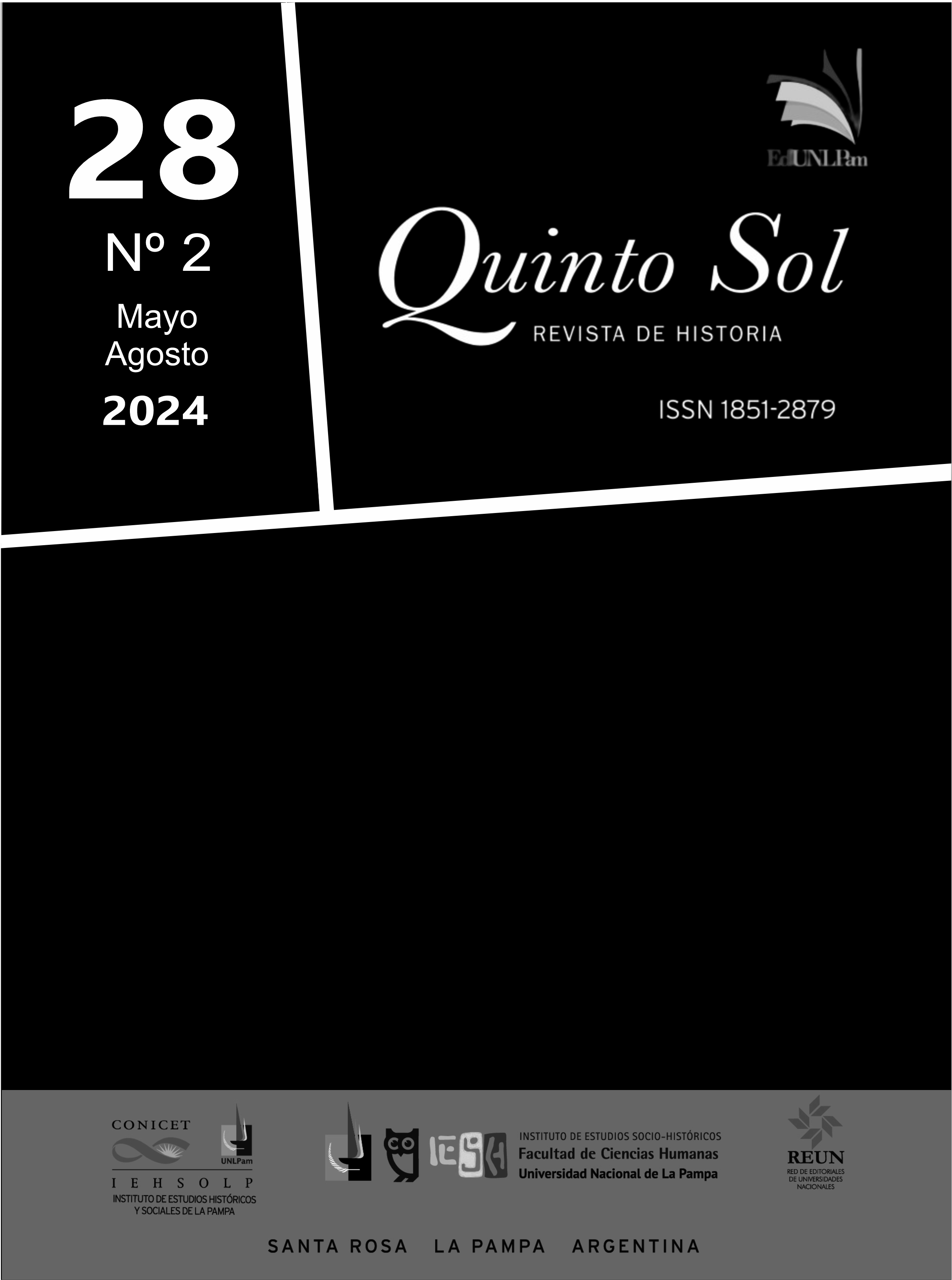Emociones, trabajo y cuidado en la frontera entre lo público y lo doméstico
DOI:
https://doi.org/10.19137/qs.v28i2.7765Palavras-chave:
emociones, cuidado, trabajo, maternidadResumo
Este dossier aborda la relación entre las emociones, el trabajo y el cuidado desde una mirada historizada que hace foco en la maternidad. Los artículos que lo integran estudian las geografías emocionales en espacios de frontera entre el dominio público y doméstico, y problematizan cómo el trabajo está imbricado con las vivencias de la maternidad, regulado por prescripciones y estilos emocionales atravesados por asimetrías de género, origen migratorio, clase, y también institucionales y profesionales. Algunos de los ejes que atraviesan el dossier son el trabajo emocional, la relevancia de la afectividad en las experiencias migratorias, tanto transnacionales como internas, y las disputas en torno a los modelos de maternidad, así como la capacidad de ajustarse o resistir a las normas y expectativas sociales. El andamiaje conceptual de la historia de las emociones permite discutir el concepto de amor materno como universal e inmutable, reconocer la variedad y complejidad de las experiencias familiares, y explorar las tensiones entre guion normativo y práctica emocional.
Downloads
Referências
Gal, S. (2002). A Semiotics of the Public/Private Distinction. Differences, 13 (1), 77-95. https://doi.org/10.1215/10407391-13-1-77
Griffin, E. (2018). The Emotions of Motherhood: Love, Culture and Poverty in Victorian Britain. American Historical Review, 123 (1), 60-85. https://doi.org/10.1093/ahr/123.1.60
Mojzuk, M. (2014). Entre el maternalismo y la construcción socio-política de la maternidad. En https://patagonialibertaria.wordpress.com/2014/12/29/libro-completo-entre-el-maternalismo-y-la-construccion-socio-politica-de-la-maternidad-marta-mojzuk/
Nari, M. (2004). Políticas de maternidad y maternalismo político. Buenos Aires, 1890-1940. Biblos.
Downloads
Publicado
Edição
Seção
Licença
Copyright (c) 2024 Quinto Sol

Este trabalho está licenciado sob uma licença Creative Commons Attribution-NonCommercial-ShareAlike 4.0 International License.
Al momento de enviar sus contribuciones, los colaboradores deberán declarar que poseen el permiso del archivo o repositorio donde se obtuvieron los documentos que se anexan al trabajo, cualquiera sea su formato (manuscritos inéditos, imágenes, archivos audiovisuales, etc.), permiso que los autoriza a publicarlos y reproducirlos, liberando a la revista y sus editores de toda responsabilidad o reclamo de terceros.
Asimismo, los autores deben adherir a la licencia Creative Commons denominada “Atribución - No Comercial CC BY-NC-SA”, mediante la cual el autor permite copiar, reproducir, distribuir, comunicar públicamente la obra y generar obras derivadas, siempre y cuando se cite y reconozca al autor original. No se permite, sin embargo, utilizar la obra con fines comerciales. Los autores podrán establecer acuerdos adicionales para la distribución no exclusiva de la versión de la obra publicada en la revista (por ejemplo, situarlo en un repositorio institucional o publicarlo en un libro), con el reconocimiento de haber sido publicado primero en esta revista.
La publicación de contenidos en esta revista no implica regalía ni cargo alguno para los/as contribuyentes.
Quinto Sol adhiere adhiere a DORA (Declaration on Research Assessment) firmada en San Francisco, California, el 16 de diciembre de 2012, y a la Declaración de México (Declaración Conjunta LATINDEX - REDALYC - CLACSO - IBICT).










4.png)
2.png)












_(2).png)


2.jpg)



1.jpg)





